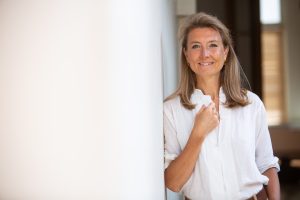Valerie Rosouxis a Research Director at the Belgian Fund for Scientific Research (FNRS). She teaches International Negotiation, Politics of Memory, and Transitional Justice at the University of Louvain (UCLouvain, Belgium). She is a member of the Belgian Royal Academy. She is an External Scientific Fellow at the Max Planck Institute for social anthropology (Halle, Germany). Since 2021, she is a Max Planck Law Fellow (2021-2026). She has a Licence in Philosophy and a Ph.D. in Political Sciences. Her research interests focus on post-war reconciliation and the uses of memory in international relations. In 2010-2011, she was a Senior Fellow at the United States Institute of Peace (Washington DC). In the past twenty years she trained diplomats, NGO workers, military officers, and students in Europe, Africa and the USA.
In 2020 she was appointed by the Belgian Parliament to serve on a commission to deal with the colonial past, and was the only expert who participated in the writing of both the initial and the final reports of the Parliamentary commission (August 2020–December 2022). She has been the recipient of numerous awards, including the Ernest Lémonon Prize (Institut de France) and the Henri Rolin Prize (Centre of International Law at the Université libre de Bruxelles) for her book Les usages de la mémoire dans les relations internationales (Bruylant, 2001), the Journal of Contemporary European Studies Anniversary Prize in 2018, and the International AffairsCentenary Prize in 2023. She is the (co)-author of several books and articles, the latest of which are: Memory Fragmentation from Below and Beyond the State (Routledge, 2023); “How Not to Mediate Conflict?” (International Affairs, 2022); “Collective Memory: An Hourglass between the Collective and the Individual” (Memory, Mind & Media, 2022); and “Deepening Understandings of Success and Failure in Post-Conflict Reconciliation” (Peacebuilding, 2022).
